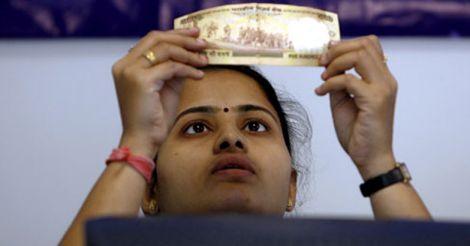This is a real-life story of my family's banking experiences. The news that a government bank had employed a private organisation to recoup Rs 185 crore of soured education loans by paying Rs 120 crore as commission and that a person who had defaulted on repayments had committed suicide, prompted me to write this piece.
While working in Delhi under the Finance Department, I was proud about the efficiency of banks in the country. Now I lament the lack of humane approach of these banks. If the account holder is under duress – physical or otherwise – and cannot sign a document, the bank might simply ignore him or her. The money and insurance policies with the bank in the name of the holder might never be put to good use of the customer.
When me and my wife, who was also in the government service, came back to Thiruvalla after retirement, many banks approached us for opening accounts. Many of the representatives who came to our house seeking an account, a deposit or to sell a financial product were either relatives or friends of relatives, whom we could not turn away empty handed. The account opening processes were very easy because the representatives completed the formalities for us, at home. Years later, when my wife was down with Parkinson's disease, we realised that the decision to associate with these banks was a wrong move.
The first bank, from which we had a bad experience, had listed us in their priority-customers' list. They used to keep us happy with gifts during festivals. When I informed them that my wife could not sign due to her disease and that money had to be withdrawn from her account for her medical needs, the bank did not acknowledge our request.
We also wanted to move her fixed deposit into her savings account.
In response to our request that the bank may collect her fingerprint from home since she could not sign the mandatory forms, the bank insisted that we produce a medical certificate in this regard. I was put off by the attitude of the same bank, which had taken all the pains to come home and collect our accounts.
Now, when we needed their service the most, we were being ignored. When I threatened that I would close all accounts with them, they relaxed some norms, of course with riders that were not easy.
We might have signed on papers with dubious ‘fine prints’ and complex terms that we could have ignored to our detriment later. We could also have signed terms which said that we would agree to changing conditions imposed by these banks on our accounts, we are not sure.
When we then tried to liquidate an equity-linked policy of a new generation insurance company, the branch manager asked us proof of our bank accounts. Even if my wife had an account in their own bank, we had to provide proof of it.
When I reached the bank, the bank said that proof of an account can be given only to the account holder, not the husband of the account holder even if the account holder is bed ridden.
The only solution would be to present a certificate from a doctor and relevant documents to prove that I am the husband of my wife. The firm did not have the facility to send the details to its insurance wing directly. When I finally furnished the documents, they asked for my wife's PAN card. Even though the bank account has details of PAN, it cannot be used, they said.
I normally see the old and young deal with such conditions meekly in Kerala, which is known for being docile and unresponsive. Since I reacted and had connections in the Finance Ministry, I had my way with the bank.
I then tried to revive an account that my wife had with a government bank. They first agreed to make me a joint account holder and solve all the issues I faced. However, when I presented myself with all documents, they said that my wife had to declare her consent. When I informed them that she could not travel or sign documents, they said that the money would then be paid to the nominee after she passed away. If our money is not useful to us during our old age, why do we have to maintain an account? While the manager agreed to come home and verify the condition of my wife, nothing has happened since a month.
The bank was not even ready to divulge who the nominee of the account was. Even though my son came directly from Mumbai, nothing helped. Now this government bank has the highest 'care' for my wife. They will ensure that her money does not go into the hands of husband or son. After she dies, if no nominee comes to claim the money, they will keep it in their custody, as their own.
In the midst of all this, a private bank representative called on me and forced me, through his sob stories, to purchase an insurance policy, worth Rs 50,000, which carried only a one-time premium.
He said that the lock in period was five years. Three days later, when the company sent a message to confirm the plan details, I came to know that I had to pay premiums regularly for another five years. I called up the company and cancelled the policy, but lost Rs 5,000 as office charges.
In the midst of diseases and age-related issues, we continue to deal with harassments by banks.
(The author is a former director with the central Finance Department)

























